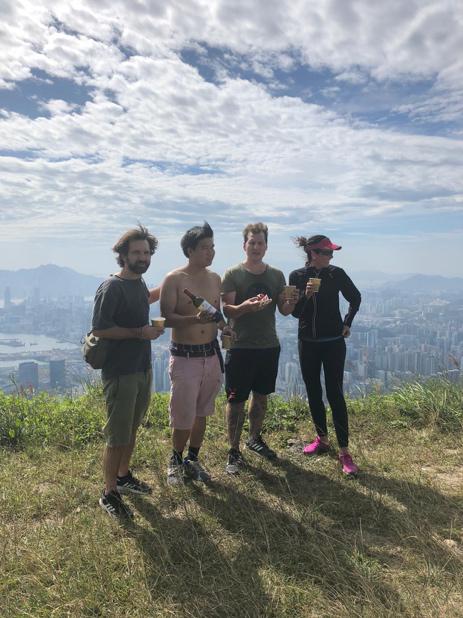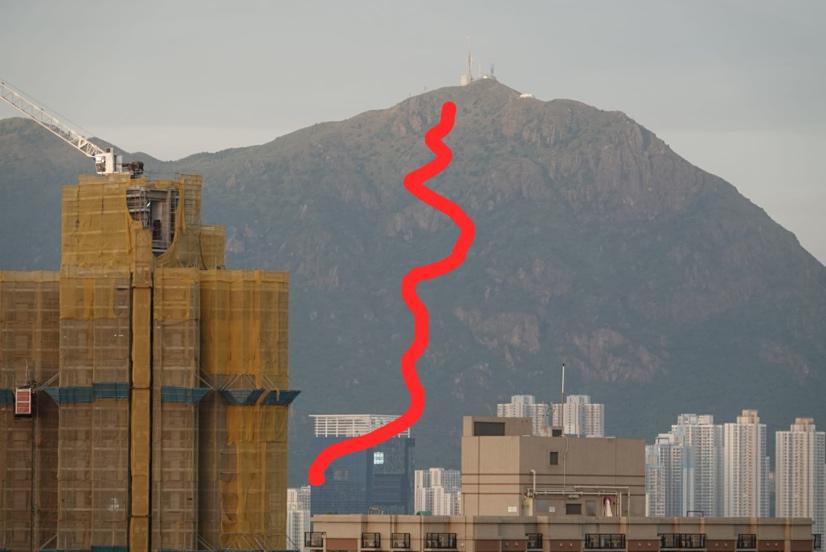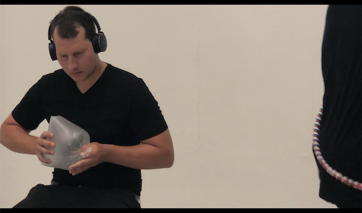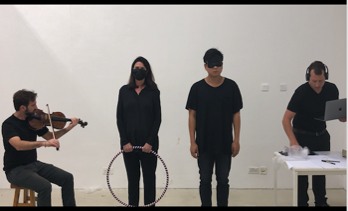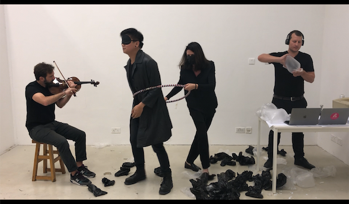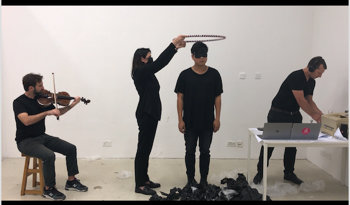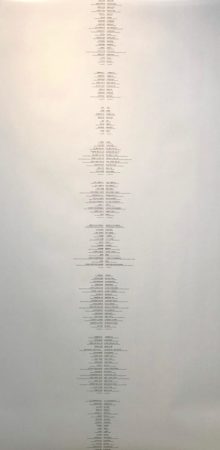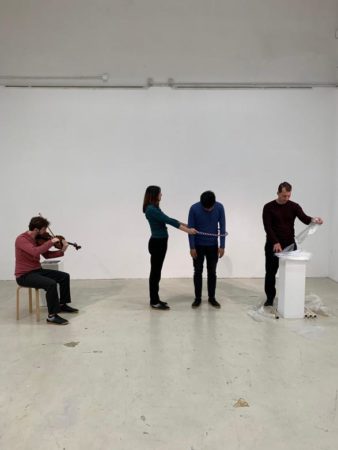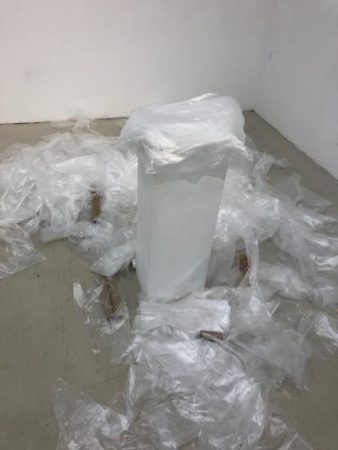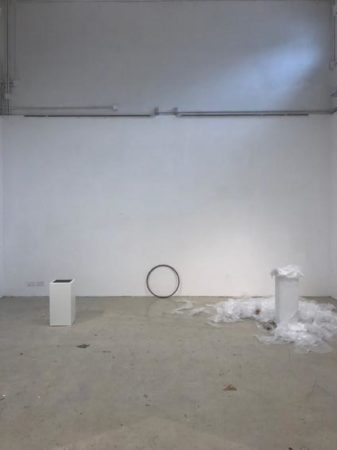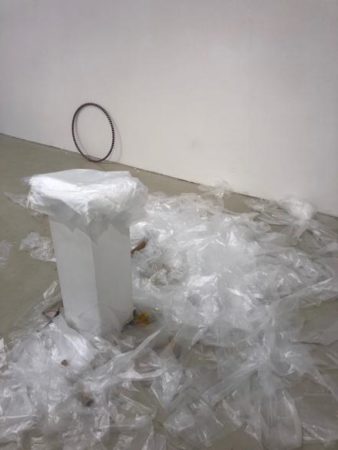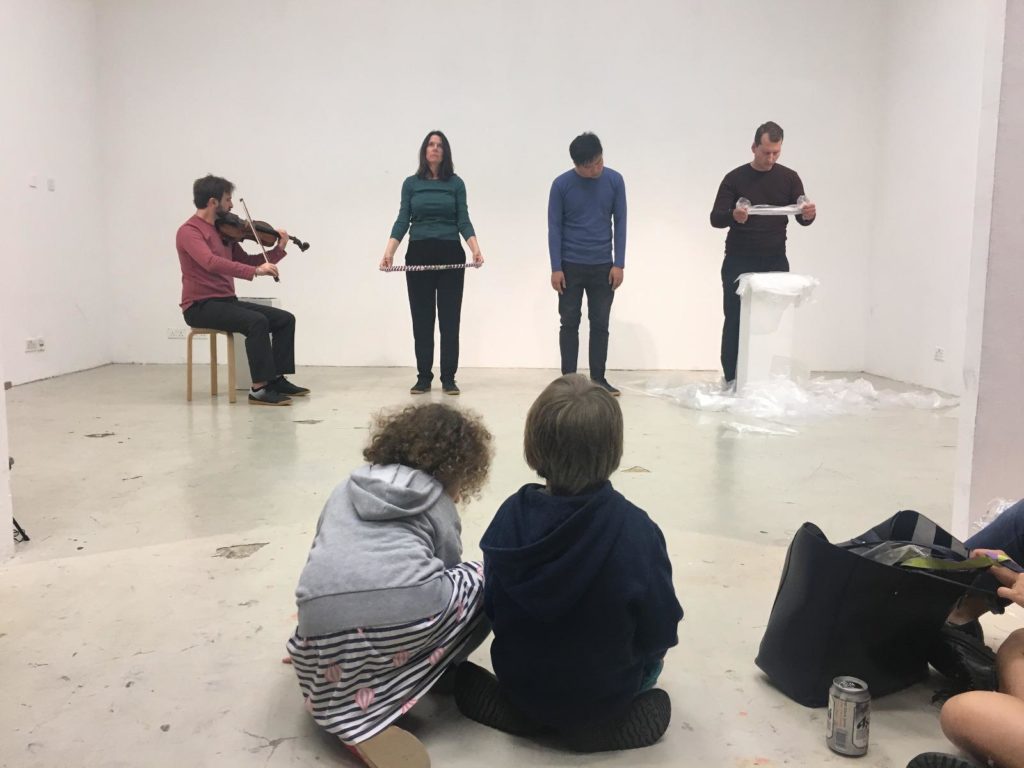By Marco Spitzbarth (Fine Arts/Digital Art, Zurich University of the Arts), Ingjerd Holten Ytterdal (Fine Arts/Painting, Academy of Visual Arts, Baptist University Hong Kong), Leonard So (Fine Arts/Theory, Academy of Visual Arts, Baptist University Hong Kong), Diego Kohn (Sound/Zurich University of the Arts).
Final performance Tanhua (5min edited version). Video: © Ingjerd Holten Ytterdal/Marco Spitzbarth/Diego Kohn/Leonard So
Intro
Chinese workers make up the largest migration in history, and it is consumption and globalization, this chain that begins with a Chinese farming village and ends up as iPhones in our pockets and Nikes’ on our feet, which has changed these workers lives. Xu Lizhi, a Foxconn worker, channelled his emotions through poems before he committed suicide at the age of 24.
Concept
Through movement, sound, audio recordings, time and space, our goal is to evoke the audience’s emotions connected to the meaningless boredom of working behind the assembly line. The three hour performance paints a picture of migrant labourer’s invisible struggle of finding purpose in 14 hours shift of repetitive movements. Once in a while, the silence is broken by a tired voice reciting Xu Lizhi’s poem:
I FALL ASLEEP, JUST STANDING LIKE THAT
The paper before my eyes fades yellow
With a steel pen I chisel on it uneven black
Full of working words
Workshop, assembly line,
machine, work card, overtime, wages…
They’ve trained me to become docile
Don’t know how to shout or rebel
How to complain or denounce
Only how to silently suffer exhaustion
When I first set foot in this place
I hoped only for that grey pay slip
on the tenth of each month
To grant me some belated solace
For this I had to grind away my corners,
grind away my words
Refuse to skip work, refuse sick leave,
refuse leave for private reasons
Refuse to be late, refuse to leave early
By the assembly line I stood
straight like iron, hands like flight,
How many days, how many nights
Did I – just like that – standing fall asleep?
Xu Lizhi
Process
Inspired by our performance in our previous work, in MCA (Ming Contemporary Museum) Shanghai, our starting point was consumerism, mass production and collection of BIG DATA from online shopping. Realizing the topic was broad and had multiple layers of meaning, we decided to narrow down. We changed the title to “Traces of Shanghai” and constructed an installation made of found objects around campus. A hula hoop, steel wires and a component box sparked off our imagination connecting roles and items to our personalities. The mass produced hula hoop with its historically incorporated spiritual symbolism from Shanghai, working continuously on the consumer connected to BIG DATA. A playful performance with defined roles utilizing scrap products unfolded.
When welcoming a new group member, we challenged ourselves and built trust climbing Suicide Cliff. We made it to the top, but did not choose the easiest way…… was it a sign?
Adding sound to the performance required a continuous process of coordinating with the movements while we constructed the narrative. Improvisation became our recurring tool while continuously recording our rehearsals. As we continued to challenge ourselves, the performance became bigger and bolder in visuals, movements and sound until we realized that less is more and narrowed down to a minimalistic version.
Moments from a rehearsal. Photo: © Ingjerd Holten Ytterdal
Edited version of rehearsals. Video: © Ingjerd Holten Ytterdal/Marco Spitzbarth/Diego Kohn/Leonard So
To learn more about this group’s work process, please click here to read their portrait A day with….
Result/State of play
The performance intentionally lasted for three hours in the exhibition hall away from the other exhibition which strengthened and supported our concept of being “hidden” or “forgotten”. The high ceiling and factory feeling created the right lights, acoustics’ and ambience suitable for the mass production narrative. The title: Tanhua expressing boredom and sadness juxtaposed with the beauty of a flower that blooms only once, Tanhua ( 曇花 ) symbolize Xu Lizhi’s short life and moment of glory. The exhibition was supported by prints of the Chinese labour workers poems.
All photos and videos © Ingjerd Holten Ytterdal/Marco Spitzbarth/Diego Kohn/Leonard So
Background, translations and credits:
Lizhi killed himself in September 2014 at the age of 24. In late October, the Nào Project— a multilingual blog and journal dedicated to human rights — translated his obituary and poems to “spread awareness [of] the harsh conditions, struggles and aspirations of Chinese migrant workers.”

